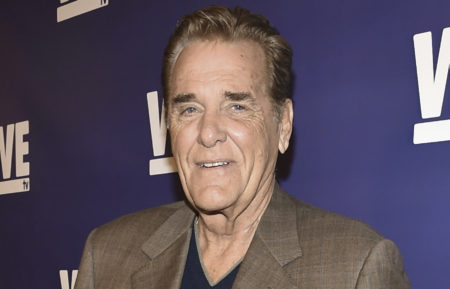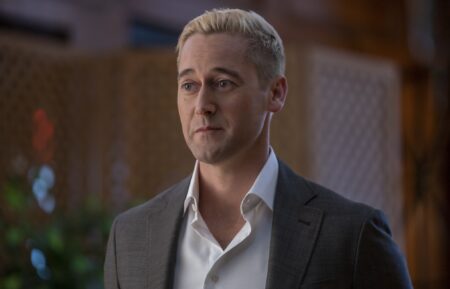The Walking Dead Survivors’ Time in Alexandria Shows Just How Much the Characters Have Changed
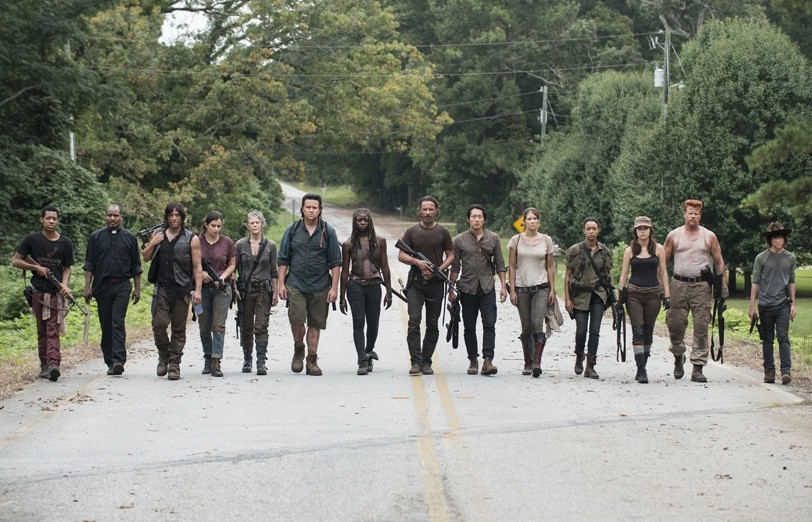
Surviving the zombie apocalypse is an unending learning process, and key lessons like “If I make too much noise, I’ll be mauled to pieces by a herd of corpses” or “If I trust strangers, everyone I’ve ever loved will be threatened with brutal murder,” can take their toll on the psyche. The constant stress of staying alive is bound to impact the personality of anyone who has been forced to contend with the open road; after making it through five seasons of such personal growth, some of The Walking Dead‘s key characters barely resemble the people we initially met. And settling into the “safe” community of Alexandria has only made those shifts clearer. As we brace for Sunday’s season finale, a look at how the survivors have changed, for better or worse.

Rick
“We’re the ones who live! You just sit and plan and hesitate. You pretend like you know when you don’t. You wish things weren’t what they are. Well, you want to live? You want this place to stay standing? Your way of doing things is done!”
Sure, that was Rick Grimes in the last episode–but it sounds a lot like his late friend and antagonist Shane Walsh. The conflict between Shane’s survival-at-any-cost attitude and Rick’s attempts to hold on to his humanity that defined Seasons 1 and 2 seems so long ago. During their time on the Greenes’ farm, Rick tried to respect Hershel’s rules while Shane was decidedly less amenable.
Now, Rick is facing a similar situation at Alexandria, but this time, he’s the morally questionable malcontent. He is being forced to choose between respecting an established community and doing what he believes needs to be done to keep his people safe, and so far he has opted for the latter.
Between these two community-crashing scenarios, Rick has had to face some hard realities about the post-apocalyptic world works. After dealing with the Governor, Terminus’ cannibals, and a variety of other unsavory characters, Rick has been trained to kill anyone he perceives as a threat without a second thought. He’s acting as Alexandria’s sheriff, but his quick willingness to accept Carol’s suggestion that abusive Pete be killed shows just how far Rick has come–or perhaps how far he has fallen–as a character. What would Dale think?
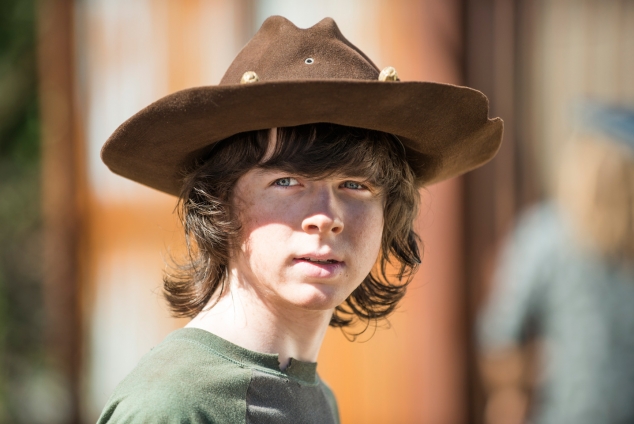
Carl
In the first two seasons, Carl was best known for being a burden, getting shot and, most of all, not staying in the house. More a plot device than a character, Carl represented Rick’s motivation to press on and search for a better life.
In later seasons, Carl transitioned from useless child to justifiably (if not rationally) angsty preteen and finally to skilled, trustworthy member of the group. When the group made their plan to dispatch the Terminus cannibals, it appeared that Rick was returning to his old habits of leaving Carl at home, but as it turned out, Carl had been left with the responsibility to guard Judith and Gabriel from the approaching menace while the rest of the group looped around for an ambush.
In Alexandria Carl has been undergoing an entirely different type of character development, sparking up a dangerously flirty rapport with fellow outside-the-walls survivor Enid. A teenage crush adds a touch of normalcy to Carl’s life, something Rick has sought for his son from the very beginning; but in The Walking Dead, where relationships usually end in crushing loss, an infatuation with Enid could have some serious repurcussions. If Ron Anderson gets jealous of the budding romance, it could make what has already become an exceedingly complicated relationship between the Grimes boys and the Anderson family even more awkward.

Daryl
Daryl’s survivalist skills have made him one of the most important members of the group, as well as a fan favorite. But when he first arrived on screen, it was as the angry, slightly less irrational redneck brother of over-the-top racist Merle.
Over time, Daryl’s increasing leadership responsibilities and relationships with Carol and Beth have made him not only a better survivor, but a better person. Once the gruff loner, he’s now tasked with making friends as a recruiter for Alexandria. And he seems ready to commit to community: When offered the chance to defy Deanna’s rules and take a gun for protection, he refused, showing that he’s willing to do more than just pretend to fit in.

Michonne
It took awhile for Michonne’s character to show some layers. She first appeared as a solo warrior leading around two walkers in chains; for a number of episodes after her introduction, her personality traits were basically limited to “angry,” “stoic” and “sword owner.”
Eventually, after an obsession with getting revenge on The Governor, she began to open up. Dream-sequences about her boho past and tragic losses, and her big sister/best buddy relationship with Carl, have softened the hardcore character into someone more complex. Now, Michonne has resolved to put up her sword and make an effort to fit in at the new community.
As Rick unraveled last week during a bloody fist fight with Pete, it was Michonne, not one of the native Alexandria residents who deescalated the situation by knocking Rick unconscious. Her actions may have saved Rick from himself and also helped the group as a whole save some face.There will certainly be fallout from Rick’s outburst in the finale, and Michonne’s influence within the group and ability to maintain order when Rick can’t will likely be put to the test. But compare her efforts to keep people together in Alexandria with her immediate rejection of the Woodbury community, and you’ll see how much things have changed.

Carol
In Season 1, she was a battered housewife who couldn’t stand up to her abusive husband Ed, much less fend off a walker. She spent most of Season 2 moping about her missing daughter (without taking much action to actually find her.) But after Sophia’s death, she started to toughen up.
By the time the group established themselves at the prison, Carol had hardened into a seasoned fighter capable of taking care of herself. But as her weepy weakness disappeared, so did some of her compassion, replaced by a distaste for emotion and a habit of sneakily taking matters into her own hands, including covert weapons training for the kids and murdering innocent people to stop the spread of a virus. After being exiled from the group by Rick, Carol redeemed herself by waging one-woman guerilla warfare on Terminus; rather than being the damsel in distress, she was doing the rescuing.
In Alexandria, Carol has taken on the guise of homemaker, but under that preppy cardigan, she’s the most militant member of Rick’s inner circle–especially when it comes to dealing with the wife-beating Pete. Carol has found strength as a survivor of both domestic violence and the apocalypse; now, as an outsider looking in on abuse, she is wholly unwilling to tolerate the situation.
With Daryl refusing to arm himself with smuggled weapons and Michonne hanging up her sword in an attempt to assimilate with Alexandria’s way of life, Carol is now one of the few characters left who shares Rick’s distrust of Alexandria’s security and his resolve to make it a better place, even if that means taking it over by force.
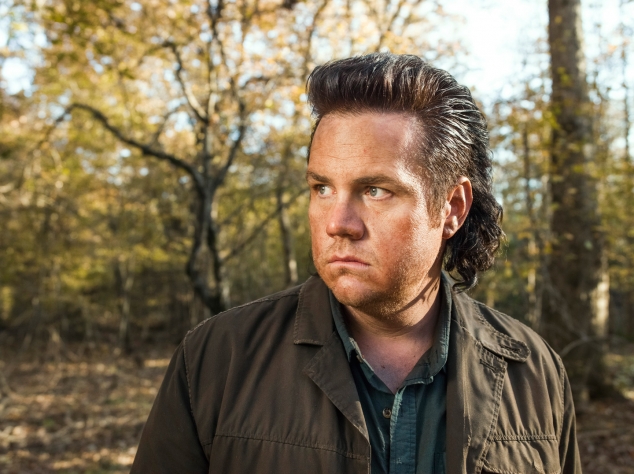
Eugene
Eugene was first introduced as the most important person in the world: he had a cure that would solve all the zombie problems, he claimed, and convinced others to protect him en route to Washington, D.C. But when he finally revealed that it was all a lie, he suddenly became the least important guy around.
Since then, Eugene has not been shy about labeling himself a coward. Until last week’s episode, Eugene valued his cowardice as the skill that had allowed a man as weak as him to stay alive in the post-apocalyptic world – it did, after all, earn him the protection of Abraham and Rosita for a time.
In last week’s episode, however, cowardice was not an option for Eugene, as he had to carry a gravely injured Tara through a walker-infested warehouse to get her to safety. He even mustered the courage to stand up to fellow coward Nicholas when he insisted they flee and leave Glenn to die.
As he seeks new ways to validate his existence, his cowardly habits might finally be replaced with a little self-confidence. Unburdened from the Washington lie that was keeping him alive, Eugene can now interact with people honestly and make legitimate human connections. With a little bit of newfound bravery, he’ll need to continue to put his intelligence to good use to serve the people he’s now actually befriending.






